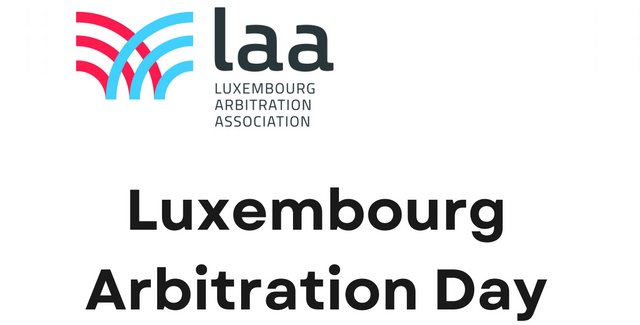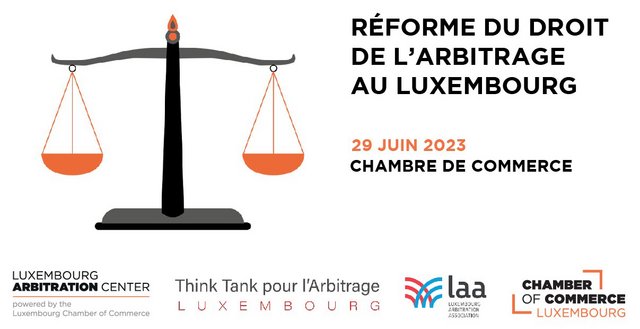
Chapters
When a company encounters difficulties and wants to settle its disputes with suppliers, service providers and/or clients, it may resort to mediation or arbitration.
A) Our missions
The Arbitration Center of the Chamber of Commerce of the Grand Duchy of Luxembourg, also known as the Luxembourg Arbitration Centre (LAC), was founded in 1987 to offer an alternative to judicial dispute resolution, which is often too lengthy, too costly and ill-suited to the technical aspects and complexity of the business world.
In addition to providing arbitration services, the Centre proactively promotes arbitration by contributing to the development of arbitration law, training quality arbitrators and providing support to local arbitration associations: the Think Tank for Arbitration and the Luxembourg Arbitration Association.
B) Organisation of the Centre
The Arbitration Council
The Centre operates under the authority of an Arbitration Council (“Council”) that consists of at least five members.
The Council’s mission is to organise and ensure the smooth progress of arbitration proceedings, in accordance with the provisions of the the LAC Rules of arbitration (Rules of Arbitration).
The Council meets to discuss and take appropriate decisions, in particular with regard to prima facie jurisdiction, the appointment or challenge of arbitrators, and arbitration costs.
Current composition of the Arbitration Council:
The Arbitration Council is currently made up of eight members, with Mr Frank Krings serving as President.

Frank Krings
Président

Olivier Cachard

Laurence Demelenne

Albert Moro

Elisabeth Omes

André Prüm

Georges Ravarani

Carlo Thelen
The Secretariat
The Secretariat, under the direction of the Secretary General, is responsible for the day-to-day management of files and the organisation of events relating to the promotion of arbitration:
Anne-Sophie Theissen, Secretary General
Michaël Sibilia
Cindy Forini
C) Contact us
Postal address:
LUXEMBOURG ARBITRATION CENTER
CHAMBRE DE COMMERCE
L-2981 LUXEMBOURG
Visiting address:
LUXEMBOURG ARBITRATION CENTER
CHAMBER OF COMMERCE
7, rue Alcide de Gasperi
L-1615 LUXEMBOURG
Opening times:
Mon-Fri: 09:00 - 12:30, 14:00 - 17:00
Tel: (352) 42 39 39-373
Email: arbitration@cc.lu
A) Why resort to arbitration?
Arbitration is a procedure whereby a dispute is submitted, by agreement between the parties, to one or more arbitrators who will render a final and binding decision. Arbitration may only take place if all parties have agreed to it.
In the case of potential disputes arising from a contract, the parties may elect in advance to submit the dispute to arbitration by inserting an arbitration clause to that effect in the contract. Even in the absence of such a clause in the contract, the parties are free to resort to arbitration after the dispute has arisen by signing an arbitration agreement.
Most disputes have the potential to be referred to arbitration. In practice, arbitration is justified for one or more of the following reasons in particular:
the dispute is international in nature;
the amounts involved are substantial;
the dispute is technically complex;
the parties wish to maintain a degree of confidentiality.
In order to inform and guide individuals and companies interested in this method of dispute resolution, the Chamber of Commerce has decided to devote an edition of its Practical Guides to arbitration in general and to the LAC and the services it offers in particular. This Guide contains explanations, advice, useful contacts and testimonials. It is available in French and English and can be found here.
The advantages of arbitration
There are numerous advantages to choosing arbitration proceedings over traditional court proceedings:
confidentiality and discretion: unlike court proceedings, which are generally public, arbitration proceedings are confidential. This means that the existence of the arbitration proceedings and any sensitive information or trade secrets involved are not disclosed to the public;
speed: the maximum time limit for arbitrators to issue a ruling is six months;
legal certainty: the arbitration award can be quickly recognised and enforced in any of the 172 countries in the world that adhere to the New York Convention of 10 June 1958 on the Recognition and Enforcement of Foreign Arbitral Awards;
professionalism of arbitrators: when faced with increasingly complex disputes, court judges called upon to rule on a dispute may not necessarily possess the required specialist skills. In arbitration proceedings, the parties have the option of either choosing their arbitrator(s) themselves, or entrustingan arbitration centre with the task of selecting the arbitrator(s) from among individuals offering every guarantee of professionalism in the specific field that is the subject of the dispute;
single procedure: in international disputes, there is a risk of multiple lengthy and costly court proceedings. By contrast, arbitration can offer a simpler and more effective alternative, as it takes the form of a single proceeding, subject to the Rules of Arbitration and the legislation determined by the parties.
B) Luxembourg as an arbitration venue
The choice of Luxembourg as an arbitration venue is justified by the country’s many assets – these include its neutrality, its political and social stability, its strategic location in Europe (midway between London/Milan as well as Paris/Frankfurt) and the quality of its transport, logistics and telecommunications infrastructure (less than two hours’ flight from the main European capitals).
In addition, the multilingual proficiency of Luxembourg’s citizens (French, German, English and Luxembourgish) and the country’s multicultural environment foster an open and international mindset and a proven ability to manage conflicts and reconcile opposing positions in a spirit of compromise and neutrality, thereby helping to maintain commercial relations between parties.
Luxembourg law and case law are generally favourable to arbitration. The country’s arbitration law was reformed by the law of 19 April 2023 amending Part II, Book III, Title I of the New Code of Civil Procedure, with a view to reforming arbitration, which came into force on 25 April 2023. The text is inspired by French law and has features in common with Belgian arbitration law and the UNCITRAL model law.
Luxembourg has a number of multilingual arbitrators of various nationalities who have been trained in France, Belgium, Germany and Luxembourg. Given the country’s geopolitical position, its legal professionals are well versed in handling complex cross-border legal transactions and disputes.Lastly, a diversified economy specialising in certain high-tech areas ensures the presence of technical experts in various fields. The existence of an internationally recognised financial centre guarantees access to the expertise needed for financial affairs.
Rules of Arbitration
The LAC has its own Rules of Arbitration, which were updated on 1 October 2025, following the launch of the LAC’s digital platform for managing arbitration proceedings, and which apply, unless the parties agree otherwise, to all proceedings brought before the LAC from that date.
The Rules had previously undergone a complete overhaul on 1 January 2020.
All the changes that formed part of the 1 January 2020 overhaul were aimed at making the arbitration process more efficient and meeting the changing expectations of the business world.
In particular, an emergency procedure was introduced allowing parties to request urgent interim/protective measures that cannot wait for the constitution of an arbitral tribunal (Appendix III of the Rules), as well as a simplified procedure allowing parties to settle disputes not exceeding €1 million, or disputes for which the parties have agreed to use this simplified procedure, more quickly and at lower cost (Appendix II of the Rules).
Digital platform
Since 1 October 2025, the LAC has provided a digital platform for managing arbitration proceedings (the “Platform”) that is based on the HighQ system (cloud-based project management and collaboration software from Thomson Reuters) and is stored and managed on secure servers in Germany.
Arbitration proceedings subject to the LAC Rules, as applicable on 1 October 2025 or any subsequent version, shall each have a dedicated site within the Platform, specially created for this purpose, where all information and documents relating to the arbitration proceedings shall be reported, stored and accessible to all participants in the arbitration proceedings.
Only the LAC (Arbitration Council and Secretariat) and the arbitration participants, at the invitation of the Secretariat, have access to the Platform.
If you encounter any issues logging in or have any questions regarding the Platform’s features, please contact: arbitration@cc.lu.
For more information, please refer to the Platform Guidelines
A) Content of the request for arbitration
To initiate arbitration proceedings, the claimant must submit a request for arbitration (Request) to the Secretariat.
In accordance with Article 3 (1)(a) of the Rules of Arbitration, the claimant must ensure that the Request contains the following information:
the names in full, description, addresses, telephone numbers and email addresses of the parties and their representatives in the proceedings;
a description of the nature and circumstances of the dispute giving rise to the claims and the basis for those claims;
an statement of the relief sought, together with the amounts of any quantified claims and, to the extend possible, an estimate of the monetary value of any other claims;
any agreements entered into between the parties, in particular the arbitration agreement, and any documents or information that clearly establish the circumstances of the case;
all relevant particulars concerning the number of arbitrators and their selection, in accordance with the provisions of Article 10 of the Rules, and;
all relevant particulars and any observations or proposals as to the place of arbitration, the applicable rules of law and the language of arbitration.
The claimant may submit such other document or information with the Request as it considers appropriate or as may contribute to the effective resolution of the dispute.
B) Payment of advance on administrative costs
The claimant must pay an advance on administrative costs of €1,000 (paragraph 8 of Appendix I of the Rules of Arbitration).
Such payment is non-refundable and shall be credited later on to the claimant’s portion of the advance on costs to cover the fees and expenses of the arbitrator and the administrative costs of the LAC(paragraph 8 of Appendix I of the Rules of Arbitration).
To ensure prompt processing of the case, we advise the claimant to attach proof of payment when filing the Request.
Please contact us in advance at arbitration@cc.lu for further details on payment conditions and the LAC's bank details.
C) Information on the claimant
Each party to arbitration proceedings must provide the Secretariat with all documents necessary to establish the respective party’s identity and, where applicable, the identity of its legal representatives and/or ultimate beneficial owners.To this end, the form for individuals / form for companies must be duly completed, signed and attached to the Request.
Form for individuals Form for companies
D) Filing your Request for Arbitration online
The Request for Arbitration (Request) and its appendices must be submitted to the Secretariat by completing the online form that is accessible via the link below. Claimants are requested to complete all fields and attach all required documents.
For more information, please refer to the Platform Guidelines
Where it is not possible to use the online form, the Request and its appendices must be submitted to the Secretariat by email to :: arbitration@cc.lu
The Secretariat may authorise or require that the Request and its appendices be filed in paper format.
E) What happens next?
The LAC shall notify the respondent(s) of the Request and any documents annexed thereto for answer, provided that the provisions of Article 3(2) to (4) of the Rules are complied with.
Please note that the commencement date of the arbitration proceedings is the date on which the Request is received by the Secretariat (Article 3(6) of the Rules of Arbitration).
Standard clauses
Model arbitration clause
In the event of a potential dispute arising from a contract, the parties may choose in advance to submit a dispute to arbitration, in accordance with the Rules of Arbitration, by inserting an arbitration clause to this effect in the contract.
Even in the absence of such a clause, the parties are free to use the arbitration services of the LAC in the event of a dispute by signing an arbitration agreement.
A) Standard clause
“All disputes arising out of or in connection with the present contract shall be finally settled under the Rules of Arbitration of the Arbitration Center of the Chamber of Commerce of the Grand Duchy of Luxembourg, by one or more arbitrators appointed in accordance with the said Rules.”
This clause may be supplemented by one or several of the following provisions:
“The arbitral tribunal shall consist in one/three arbitrator(s).”
“The law applicable to this contract is (…).”.
“The arbitration shall be conducted in (…) \[language].”.
“The place of the arbitration shall be (…) \[city, country].”
B) Standard clause options
Exclusion of the emergency measures provisions
If the parties wish to exclude any recourse to the emergency measures proceedings, they must expressly opt out by adding the following wording to the arbitration clause under A):
“The provisions regarding the emergency measures shall not apply.”
Simplified proceedings provisions
The Rules provide for use of simplified proceedings for lower-value cases (amount of the claims less than or equal to €1,000,000).
- If the parties wish to exclude the simplified proceedings provisions, they must expressly opt out by adding the following wording to the arbitration clause under A):
“The simplified proceedings provisions shall not apply.”
- If the parties wish to avail themselves of the simplified proceedings provisions, irrespective of the amount in dispute or beyond the limit set forth by the Rules, they must expressly opt in for the application of these by adding the following wording to the arbitration clause under A):
“The parties agree, pursuant to Article 22 paragraph 2 of the Rules, that the simplified proceedings provisions shall apply (irrespective of the amount in dispute / provided that the amount in dispute does not exceed (…).”
Arbitration agreement
Even in the absence of an arbitration clause, the parties are free to use the services of the LAC in the event of a dispute by signing an arbitration agreement.
Cost Calculator
The arbitration costs include the arbitrator’s fees and expenses as well as the LAC's administrative costs. These are set by the Council in accordance with the provisions of Appendix I of the LAC Rules of Arbitration in force at the time the arbitration commences.
A cost calculator complying with Appendix I of our Rules of Arbitration (version applicable from 1 January 2020) is available for you to use.
Each Request for Arbitration must be accompanied by the payment of an advance of €1,000. This payment is non-refundable in all cases and will be credited later on to the claimant’s portion of the arbitration costs.
Emergency Proceedings Costs
Emergency proceedings have been excluded from the cost calculator, as these proceedings are generally subject to a flat fee of €18,000 payable by the claimant, of which €15,000 covers the fees and expenses of the emergency arbitrator and €3,000 covers the Centre’s administrative costs (paragraph 20 of Appendix III of the LAC Rules). In the event that the emergency measures proceedings do not take place or are otherwise terminated prior to the making of a decision, the President of the Council, or any other member of the Council appointed for this purpose by the President, shall determine the amount to be reimbursed to the claimant, if any. An amount of €1,000 for the administrative costs of the Centre is non-refundable in all cases (paragraph 24 of Appendix III of the LAC Rules).
Disclaimer
The calculator allows you to estimate the costs involved, based on the average fees of an arbitrator. This is not a firm or binding estimate of the costs that will be fixed by the Arbitration Council. Depending on the case, the Arbitration Council may fix the costs above or below the average amount. In addition, the costs may be adjusted at any time during the proceedings, in particular to take into account fluctuations in the amount in dispute, changes in the amount of the arbitrator’s estimated fees, or the evolving difficulty or complexity of the arbitration proceedings.
If the amount in dispute exceeds €50,000,001, the Arbitration Council will determine the costs on a case-by-case basis.
All amounts are stated exclusive of any value added tax (VAT), or any other applicable taxes or imposts. The parties have a duty to pay any such taxes or charges.The recovery of any such taxes or charges is a matter to be treated solely between the arbitrator and the parties.
Meeting / Hearing rooms
Located in Kirchberg, Luxembourg’s main business district, our Conference Centre is an ultra-modern setting suited to the conduct of arbitration proceedings. The LAC and Conference Centre are located close to the city centre, airport, hotels and major motorways. They are easily accessible by car (with access to an underground car park) and by public transport (tram and bus stops are located 200 metres away).
The hearing rooms are equipped with videoconferencing facilities, translation booths, projectors and screens. They can accommodate groups of all sizes.
Organisers have the choice of serving lunch, a buffet or cocktails.
Please do not hesitate to contact the Arbitration Center or the Conference Centre to receive a quote.
A) Centre For Civil And Commercial Mediation (CMCC)
Mediation is a voluntary dispute resolution process in which an impartial, independent third party trained in mediation techniques helps to organise exchanges between individuals or institutions in order to improve their relationship or manage a dispute between them. The mediator is a qualified person who is attentive to everyone’s interests. They structure the meetings to ensure a respectful atmosphere and mutual understanding. The mediator is bound by professional secrecy.
The Centre for Civil and Commercial Mediation (CMCC) a.s.b.l., established on 13 March 2003 and renamed and restructured on 24 February 2012, is responsible for:
implementing the mediation process for the resolution of conflicts for citizens and businesses in the context of settling their civil, commercial or social disputes;
promoting mediation as a preventive technique and, where appropriate, a more effective means of conflict resolution for citizens and businesses; and providing training in mediation techniques and processes to ensure a high level of professionalism.
The association works with companies and individuals to help settle their civil, commercial or social disputes. Its members include: the Luxembourg Bar Association, the Chamber of Commerce, the Chambre des Métiers (Chamber of Skilled Crafts), and the Collège Médical.
B) Luxembourg Arbitration Association
The Luxembourg Arbitration Association a.s.b.l. (“LAA”) is a non-profit organisation founded in 1996, dedicated to the promotion and development of arbitration practice in Luxembourg. Its aim is to provide support on the subject matter to authorities, parties, and institutions, by sharing expertise and information on arbitration-related matters, as well as providing a comprehensive database of Luxembourg and international qualified arbitrators and practitioners.
Useful Links
- Practical Guide to Arbitration (EN and FR)
- LAC Model Clauses (FR, EN and DE)
- The Law of 19 April 2023 amending Part II, Book III, Title I of the New Code of Civil Procedure, with a View to Reforming Arbitration (FR)
- LAC Rules of Arbitration 2020 (FR, EN and DE)
- LAC Rules of Arbitration 2014 (FR, EN and DE)
Guidelines LAC Case Management Platforme (EN)







